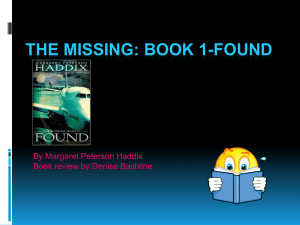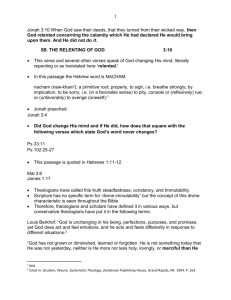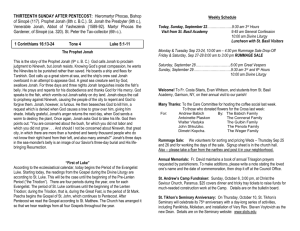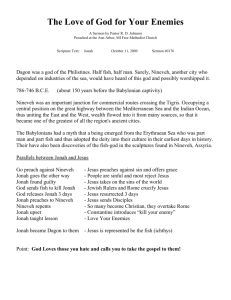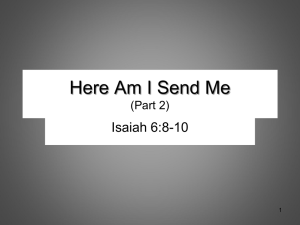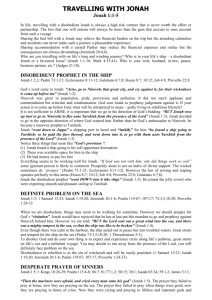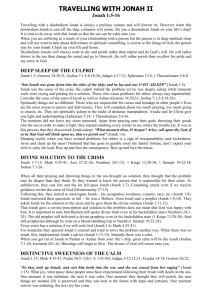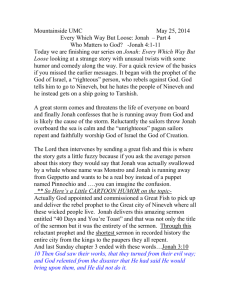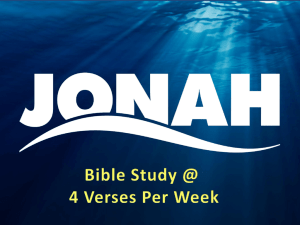A look at the book – Jonah
advertisement
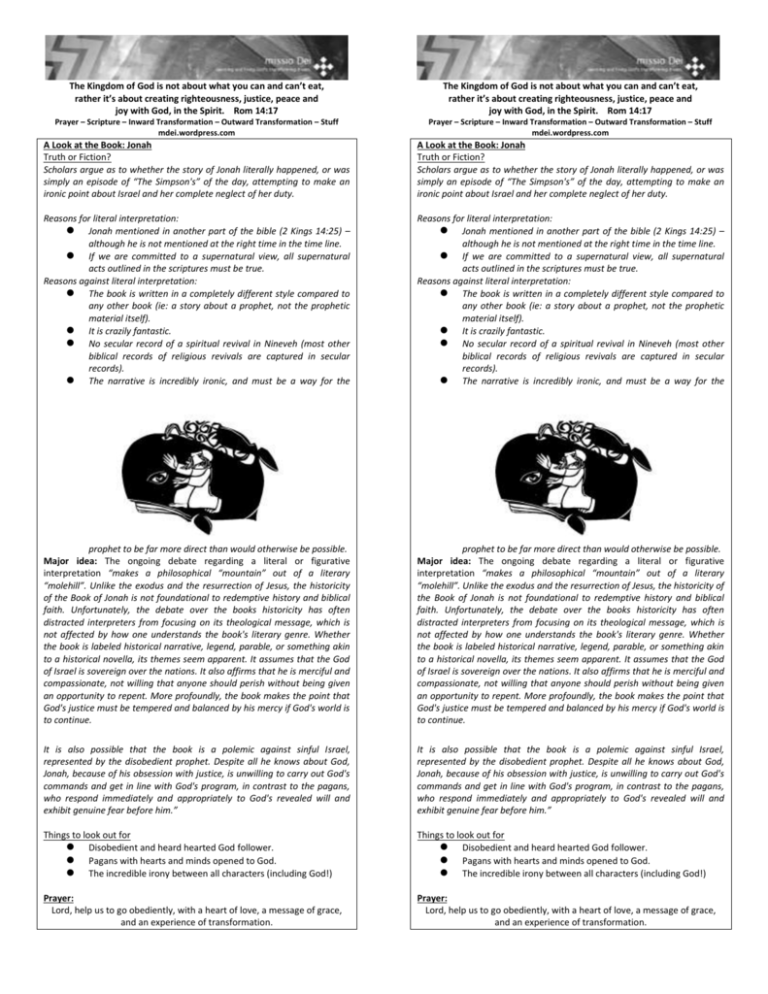
The Kingdom of God is not about what you can and can’t eat, rather it’s about creating righteousness, justice, peace and joy with God, in the Spirit. Rom 14:17 The Kingdom of God is not about what you can and can’t eat, rather it’s about creating righteousness, justice, peace and joy with God, in the Spirit. Rom 14:17 Prayer – Scripture – Inward Transformation – Outward Transformation – Stuff mdei.wordpress.com Prayer – Scripture – Inward Transformation – Outward Transformation – Stuff mdei.wordpress.com A Look at the Book: Jonah Truth or Fiction? Scholars argue as to whether the story of Jonah literally happened, or was simply an episode of “The Simpson's” of the day, attempting to make an ironic point about Israel and her complete neglect of her duty. A Look at the Book: Jonah Truth or Fiction? Scholars argue as to whether the story of Jonah literally happened, or was simply an episode of “The Simpson's” of the day, attempting to make an ironic point about Israel and her complete neglect of her duty. Reasons for literal interpretation: Jonah mentioned in another part of the bible (2 Kings 14:25) – although he is not mentioned at the right time in the time line. If we are committed to a supernatural view, all supernatural acts outlined in the scriptures must be true. Reasons against literal interpretation: The book is written in a completely different style compared to any other book (ie: a story about a prophet, not the prophetic material itself). It is crazily fantastic. No secular record of a spiritual revival in Nineveh (most other biblical records of religious revivals are captured in secular records). The narrative is incredibly ironic, and must be a way for the Reasons for literal interpretation: Jonah mentioned in another part of the bible (2 Kings 14:25) – although he is not mentioned at the right time in the time line. If we are committed to a supernatural view, all supernatural acts outlined in the scriptures must be true. Reasons against literal interpretation: The book is written in a completely different style compared to any other book (ie: a story about a prophet, not the prophetic material itself). It is crazily fantastic. No secular record of a spiritual revival in Nineveh (most other biblical records of religious revivals are captured in secular records). The narrative is incredibly ironic, and must be a way for the prophet to be far more direct than would otherwise be possible. Major idea: The ongoing debate regarding a literal or figurative interpretation “makes a philosophical “mountain” out of a literary “molehill”. Unlike the exodus and the resurrection of Jesus, the historicity of the Book of Jonah is not foundational to redemptive history and biblical faith. Unfortunately, the debate over the books historicity has often distracted interpreters from focusing on its theological message, which is not affected by how one understands the book's literary genre. Whether the book is labeled historical narrative, legend, parable, or something akin to a historical novella, its themes seem apparent. It assumes that the God of Israel is sovereign over the nations. It also affirms that he is merciful and compassionate, not willing that anyone should perish without being given an opportunity to repent. More profoundly, the book makes the point that God's justice must be tempered and balanced by his mercy if God's world is to continue. prophet to be far more direct than would otherwise be possible. Major idea: The ongoing debate regarding a literal or figurative interpretation “makes a philosophical “mountain” out of a literary “molehill”. Unlike the exodus and the resurrection of Jesus, the historicity of the Book of Jonah is not foundational to redemptive history and biblical faith. Unfortunately, the debate over the books historicity has often distracted interpreters from focusing on its theological message, which is not affected by how one understands the book's literary genre. Whether the book is labeled historical narrative, legend, parable, or something akin to a historical novella, its themes seem apparent. It assumes that the God of Israel is sovereign over the nations. It also affirms that he is merciful and compassionate, not willing that anyone should perish without being given an opportunity to repent. More profoundly, the book makes the point that God's justice must be tempered and balanced by his mercy if God's world is to continue. It is also possible that the book is a polemic against sinful Israel, represented by the disobedient prophet. Despite all he knows about God, Jonah, because of his obsession with justice, is unwilling to carry out God's commands and get in line with God's program, in contrast to the pagans, who respond immediately and appropriately to God's revealed will and exhibit genuine fear before him.” It is also possible that the book is a polemic against sinful Israel, represented by the disobedient prophet. Despite all he knows about God, Jonah, because of his obsession with justice, is unwilling to carry out God's commands and get in line with God's program, in contrast to the pagans, who respond immediately and appropriately to God's revealed will and exhibit genuine fear before him.” Things to look out for Disobedient and heard hearted God follower. Pagans with hearts and minds opened to God. The incredible irony between all characters (including God!) Things to look out for Disobedient and heard hearted God follower. Pagans with hearts and minds opened to God. The incredible irony between all characters (including God!) Prayer: Lord, help us to go obediently, with a heart of love, a message of grace, and an experience of transformation. Prayer: Lord, help us to go obediently, with a heart of love, a message of grace, and an experience of transformation.


